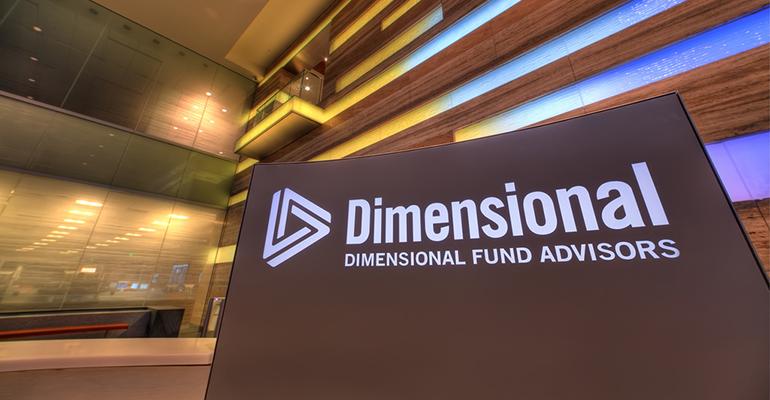(Bloomberg) -- David Booth’s Dimensional Fund Advisors has seized the crown of largest active ETF manager 14 months after the quant giant entered the industry.
Supercharged by a series of unprecedented mutual fund conversions, assets across the firm’s 13 exchange-traded funds have surged to nearly $46 billion, surpassing First Trust’s $45 billion haul in actively managed funds, according to Bloomberg Intelligence data. Including passively managed funds, Dimensional is on the cusp of becoming one of the top 10 largest U.S. issuers.
The rankings highlight the $679 billion asset manager’s embrace of the ETF structure after only launching its first such fund in November 2020, a decision driven by client demand from a roster that includes financial advisers, institutional investors and sovereign wealth funds. After the quant firm’s first funds amassed $1 billion in four months, Dimensional shot up the leaderboard by converting nearly $40 billion worth of mutual fund assets into ETFs, jumpstarting what Bloomberg Intelligence expects could be a $1 trillion wave.
“95% of their assets are mutual fund conversions so it’s impressive but not surprising, because they’ve brought over so many assets,” said James Seyffart, Bloomberg Intelligence ETF analyst. “If they continue doing this, their growth is pretty much guaranteed.”
Several other fund managers have similar plans as the conversion trend gathers momentum. Franklin Templeton is flipping roughly $250 million of mutual funds assets into ETFs this year, while JPMorgan Asset Management has roughly $10 billion worth of conversions planned.
While conversions make up the bulk of Dimensional’s ETF assets, the quant-investing firm’s organic growth has been impressive as well. Dimensional’s first four fixed-income funds already have close to $1 billion in assets after launching in November. The firm’s total ETF roster is also expected to expand to more than 20 this year, from 13 funds currently.
“DFA has a very strong core base of advisers and investors which is likely to translate into ETFs to some extent,” Seyffart said.





